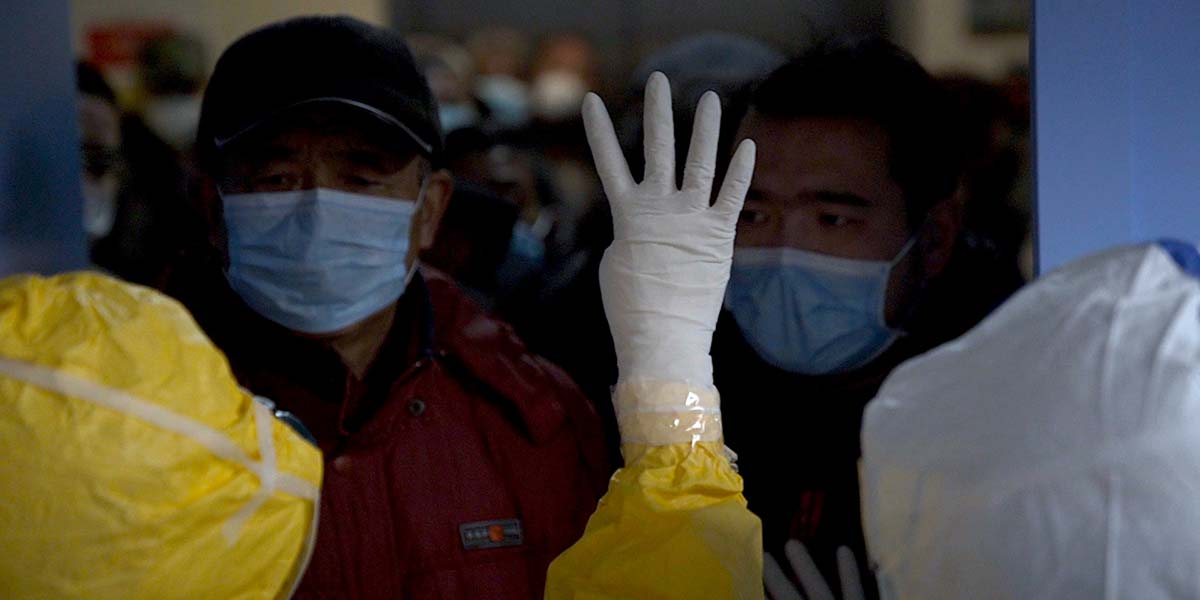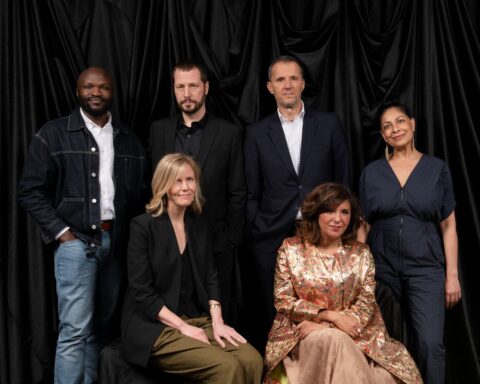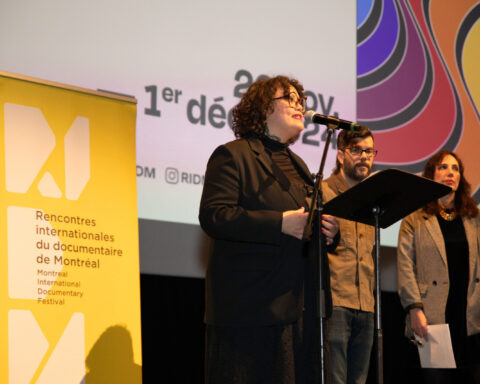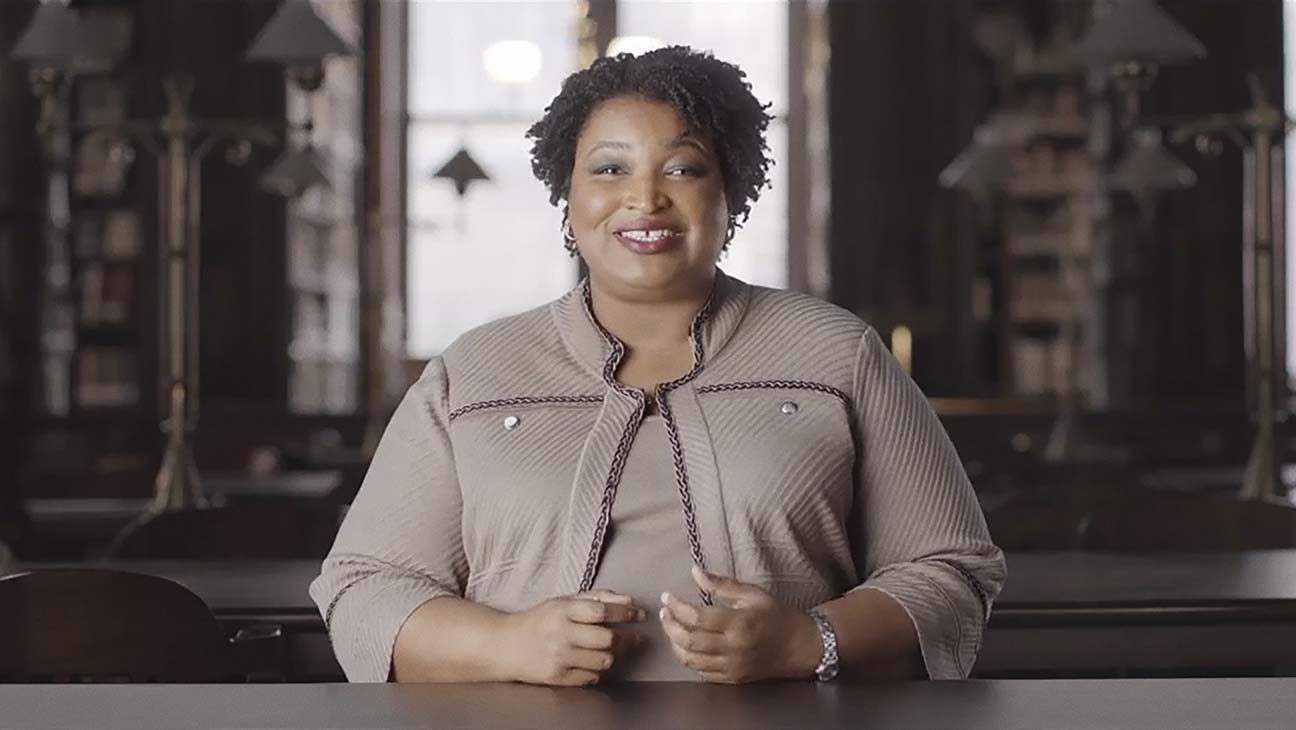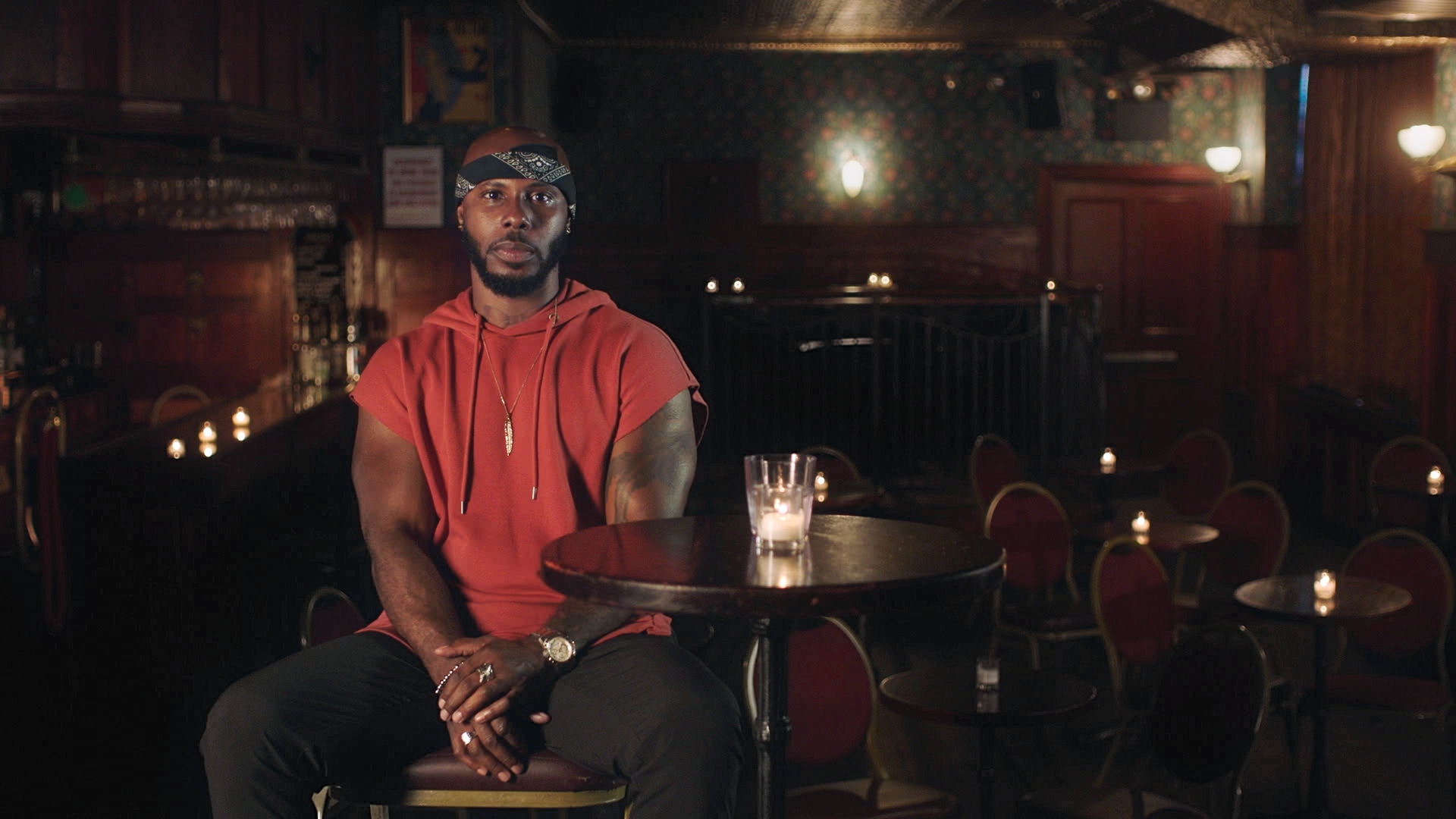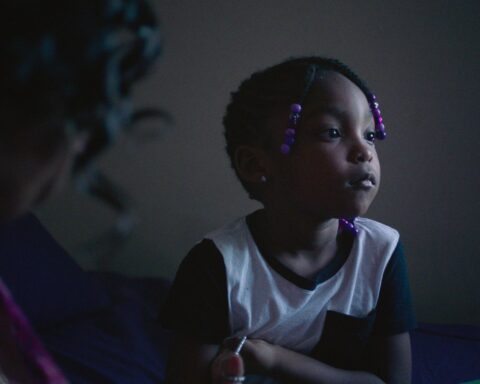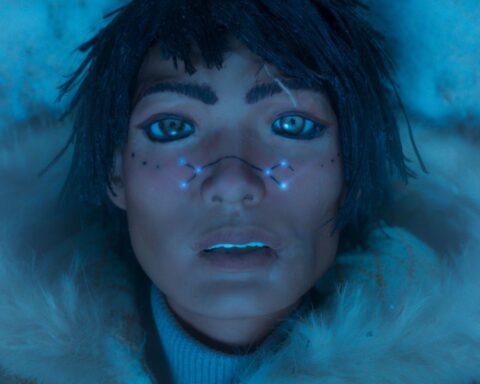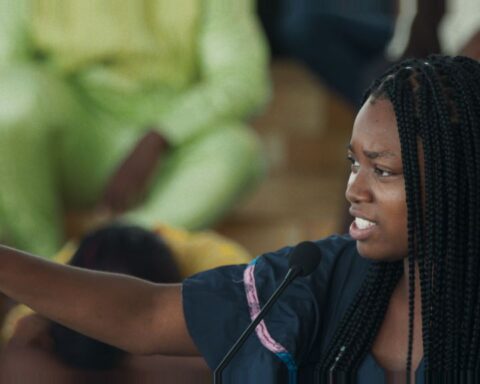Seeing a coronavirus documentary in the middle of the current global pandemic might not be on top of many “to do” lists. However, few films capture a story in the midst of its unfolding quite like the 76 Days does. The film, which has its world premiere at a version of the Toronto International Film Festival (TIFF) scaled back due to COVID-19 precautions, offers an urgent and immediate portrait of the pandemic that audiences need to see.
76 Days takes audiences to the epicentre of the outbreak. The cinema verité film features footage shot in Wuhan, China during the city’s 76-day lockdown in which healthcare workers indefatigably endeavoured to contain an outbreak while their government controlled the flow of information that could have tempered the spread of infection. These images show nurses and doctors remaining cool under pressure as they struggle to respond to an ever-evolving virus they don’t yet understand. The gripping footage shows the physical, emotional, and psychological tolls of COVID-19, both on the patients suffering with it and on the professionals dedicating themselves to their recoveries. Amid a slew of films that already feel dated, having scrambled in post-production to account for the pandemic, this portrait of COVID-19’s days from late January to early April is a timeless capsule that preserves a chapter in the history of a plague that has paralysed the world.
The fact that the film exists is something of a miracle and an example of the larger humanist effort we’ve seen amid the pandemic. Hao Wu, directing remotely from the U.S.A., is the film’s chief creative force having shifted through rare footage shot in the hospitals and ICUs of Wuhan by filmmakers Weixi Chen and Anonymous. These strangers, collaborating over telecommunications technology, are proof that humans will inevitably work together to combat the unknown. 76 Days is a difficult and harrowing experience, but ultimately a hopeful one.
POV spoke with director Hao Wu ahead of the premiere of 76 Days to learn more about documenting the frontlines of COVID, directing remotely, and navigating these unprecedented times.
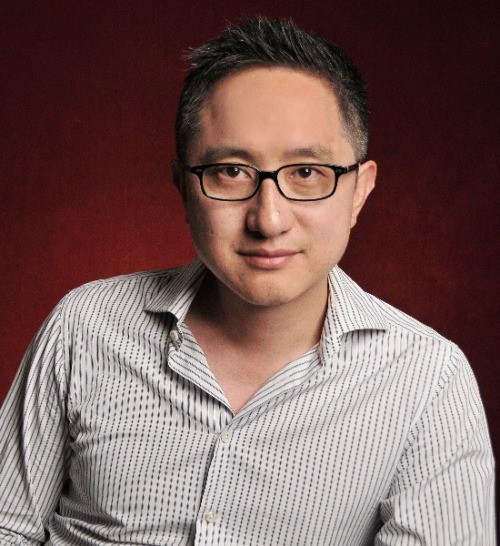
POV: Pat Mullen
HW: Hao Wu
This interview has been edited for brevity and clarity.
POV: This footage from Wuhan is so powerful. What did you expect to find when you began the project?
HW: I started researching back in mid-February. At that time, the story was primarily in China with some spillover to other Asian countries. As a documentary filmmaker, I did two things. I really educated myself about what happened since December based on the news reports. Secondly, I reached out to filmmakers to see who was filming and what they were they filming. Some were filming in the hospitals and some were filming volunteers. There were many great stories about volunteers trying to help out, supplying masks and getting food into Wuhan because it was under lockdown. Volunteers provided psychological counseling to the trauma traumatized residents. All sorts of stories were being filmed.
POV: How did you come to focus on the hospital?
HW: The current story didn’t come to shape until I started editing stage. There have been a lot of documentaries that came out in China on TV and on streaming websites about how the city reacted to the lockdown despite the censorship. I didn’t want to regurgitate what’s already been well-covered in print news or short documentary forms. It’s too soon to draw any conclusions while we’re still in the midst of it. The strength of the footage I collected from the front line was so rare. We hear statistics about the geopolitical implications, but despite the extensive TV news coverage, even people in China don’t fully understand the personal stories from the front lines.
POV: How did you select your characters and communicate with your co-directors in China about who to follow?
HW: I started talking to my co-directors in mid-February after they shared some rushes with me. I saw who they considered to be potentially interesting characters. I would tell them over the phone, “I think this one’s worth following. Can you go back?” We collaborated that way until the end of March when they basically stopped working with me because of the geopolitical tension between the U.S. and China. The focus really came during editing. For example, we dropped a couple of characters. My co-directors had followed some volunteers outside the hospital and we dropped those characters. There was another doctor who was an early whistleblower. My co-directors thought she could be very interesting, but she was not compelling on screen as a character in the footage we were able to capture. We could have gone back to do interviews with her about the chaos of the early days and what she did as a whistleblower, but that’s her story. She’s done interviews with the Wall Street Journal and other newspapers. Her story is out there already. I tried to edit in some interviews at the beginning, but hey took us out of the intensity of the verité scenes.
I originally thought about doing a Wiseman-style film with a group portrayal. You can still see this theme in some of the characters. They come in, they say something, and then disappear, but other characters repeat in in different frequencies, like the old grandpa who has dementia. He’s a through line that ties the film together.
POV: The female nurse is such a compelling character. [Names have been omitted from this article by request to preserve the subjects’ privacy and safety.- POV]
HW: If you watch the film closely, she actually disappears for a quite a while. Her strong scenes are at the end, when she was cleaning the phones and ID cards of the dead people, and returning them to their families. One of my co-directors was filming with no particular focus on her because they were trying to capture the whistleblower doctor. But during editing, I saw that she was determined to return those phones and the ID cards to the families. My co-directors went back to film her a couple more times and I went through the earlier footage and picked out any shots with her. I wish I could have built up her character more at the beginning or in the middle of the film, but I think the audience will have a strong emotional memory of her because her presence is so important approaching the end of the film.
POV: What were the challenges of keeping track of such a large cast of characters who were mostly in PPE (personal protective equipment)? Their gear has writing on it, but it’s not translated.
HW: They had to write their names right on the back of their suits, otherwise nobody could tell them apart at the hospital. The hospital has local staff, but the government sent many healthcare workers from the rest of China to support Wuhan. The hospital was very crowded, but I could tell them apart during editing. The challenge came once I started doing test screenings. For American audiences or any non-Chinese audience who can’t read Chinese characters, I wanted viewers to be able to track the two main nurses. [Identification intertitles] appear near where their names were written on the PPE. For other characters, I didn’t bother because they only appear once. During the test screenings, people could still can keep track of the characters because of the emotional tones. The character tones are very different: the new parents, the old grandpa, the male nurse who was holding hands with the old grandma, and [the female nurse] who was trying to return phones to people’s families.
POV: Can you tell me more about the test screenings? How much of an appetite is there for coronavirus documentaries right now?
HW: I’m back in New York now, but for the past five months, I was in Atlanta. My partner and I moved there because we have kids and decided to stay at my in-laws’ place. We had some backyard screenings in Atlanta that were socially distanced. I invited some people and they brought their friends. In the beginning, people were reluctant, but once they saw the film, they couldn’t stop talking about it because the access is so unique. We get to understand the front lines. Once the film goes through the festival circuit, we’ll see if people want to come [to theatres]. I don’t know how audiences will react.
POV: 2020 has been a series of crazy news cycles, so why did you decide to contain the story within the specific time frame of January to April, rather than constantly re-edit to account for events that unfolded as the pandemic continued?
HW: We had a lot of discussions about how to tell the story. The pandemic is continuing to evolve. News analysis of what happened in the past can flip flop. It depends on how each country is reacting, not just in the past, but also in the current and upcoming phases. I decided not to include any news clips or statistics about the initial outbreak in Wuhan. Some tests screening viewers said they wished they could have been informed about how the infection cases were growing, plateauing, or dropping in Wuhan, but I don’t want to repeat what the news media is already doing because it’s a film.
POV: Right, and the footage is just so immediate and compelling.
HW: By making it “smaller,” or just focusing on the human emotions in the edit, I hope my film will last longer. Instead of news analysis or political analysis, I want this film to show how human beings help each other live through catastrophes. I would like future generation to be able to watch this. The story can still resonate with them because every once in a while, we all have to live through a crisis whether it’s a pandemic, a war, or something else. How can we see a glimmer of hope? How can we live through this together?
POV: How long did the edit for this film take compared to others?
HW: It was actually really easy. I edited this film in three months. My last film, People’s Republic of Desire, was in editing for two years. At the very beginning, my co-directors decided to stop working with me because they were worried about what I would do with this film and whether it would bring them any trouble in China. There were so concerned with that. I’d seen the rushes, but I didn’t know from the footage whether there was a film there and if they would work with me, I just put together a rough assembly. It showed them that the film was not going to bring them any political trouble in China. I followed my instinct and took the scenes that moved me. There’s an emotional arc, not a factual arc of what happened, so that then made the editing a lot faster.
POV: How did your experience with previous films help you in terms of telling stories and getting footage that the Chinese government might approve of?
HW: The focus for my past films is really on the characters and how people in China live through change. The Road to Fame is about young people doing a Broadway musical and People’s Republic of Desire is about live-streaming internet celebrities in China. My Netflix original short All in My Family is about my own personal story of building a LGBTQ family, having kids through surrogacy, taking them back to China, and seeing how Chinese parents react to that. That track record made my co-directors somewhat more comfortable. I don’t believe in purely black and white categorizations of groups of people or governments. My focus is really about the human experience.
POV: How did that help you direct remotely from the USA?
HW: It’s easy for me to build rapports with people over the phone. My co-directors and I have only done one Face Time video call all. The rest were just voice calls. I’ve never met them. I’m really appreciative of the trust they gave me.
POV: What conversations are you having with them now that film is going to be released?
HW: This film is Weixi Chen’s first feature documentary. He’s done shorts before, so he’s really excited, but with Anonymous, it’s still a matter of, “I let you do the film, but don’t bring me into it.” He’s a local reporter in Wuhan. He doesn’t want any potential blowback. I don’t think the government will have issues with this film because it is not about the government’s actions. It’s about person to person interactions. But in our age of social media, any internet troll might take a screenshot and criticize us for taking advantage of people’s tragedies.
POV: Although we don’t see this footage in 76 Days, I understand you did some filming in New York during the pandemic. How was that experience?
HW: I filmed for two weeks in New York when a U.S. network was still involved. They dropped the project because the COVID story was so big.
I had creative challenges because we started working in Wuhan but I wondered how we could incorporate this evolving global story. I started filming in New York just to get a sense. A couple of things really struck me. When you hit New York, there’s so much news coverage about the hospitals running out of PPE and both the government and the medical professionals being under-prepared. People were panicking, but there were a lot of good things. People in New York were cheering for volunteers. Overall, I saw China’s story happening in the U.S., which was truly bizarre because I was in Shanghai for Chinese New Year during the lockdown. Back then, it didn’t feel real. I only felt that the coronavirus pandemic was real once it hit New York because New York is home.
POV: Were you surprised by the difficulty of access in New York after seeing the footage in Wuhan?
HW: There was no way I could go into a hospital to film the frontline. I could not film in the hospitals in New York, just in doctors’ private clinics. In Wuhan, the government controls access to the hospitals, but that control was not uniformly applied. Some hospital were really difficult to get into unless the government sanctioned film groups or reporters. I only know of one hospital in the New York area that eventually welcomed a film crew. Obviously, there are privacy concerns. I think U.S. authorities are afraid of liability if somebody came in and got sick. People in China are not as concerned about that. You make your own decisions.
POV: How has the pandemic affected your personally?
HW: Both my parents have late stage cancer. They both had surgery. My mom had it two years ago. My dad had it last year. We couldn’t fly and take the kids back for Chinese New Year. We cancelled the tickets six hours before the flight. We were agonised because I really wanted to have my parents spend as much time as they could with their grandkids. My mom and I talk over We Chat and she says she is just trying to stay as healthy as possible so that she can hopefully see us next year. It’s been hard not being able to see my family in China. My grandpa was diagnosed with late stage liver cancer and he passed away in early March. I thought we still had time to see him, but by then China had closed its border. I ended up not being able to say goodbye to him.
POV: Do you think we ever will get back to “normal,” so to speak?
HW: We will. The only thing I’m worried about is that we will quickly forget about what we went through. We should be better prepared for the next time. It’s like the economic crisis. Capitalism takes over once again until we hit the next crisis.
76 Days premieres at TIFF on Monday, Sept. 14.
TIFF runs Sept. 10-19, 2020.




